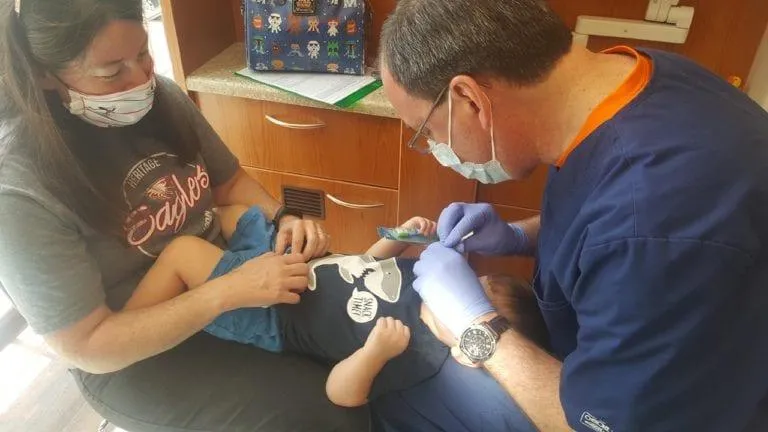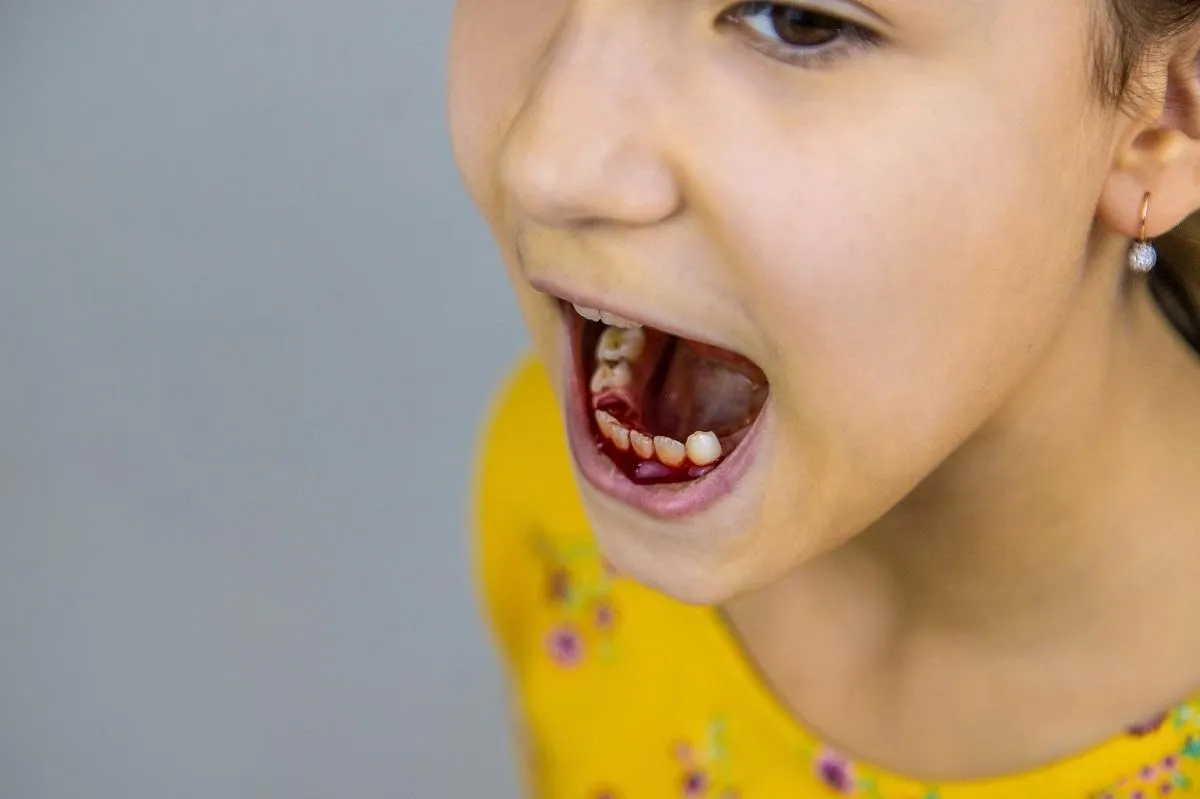WELCOME TO
HURST PEDIATRIC DENTISTRY!
Here at the pediatric dental office of Dr. Joby Hurst, we take pride in offering our young patients the highest quality of dental care in a kid-friendly environment. We are conveniently located in Birmingham, Alabama and are experienced in providing routine dental care for infants, children, teens and patients with special needs.
Dr. Hurst and his team of friendly professionals work together to provide a positive dental experience that will make your child smile! We promise to work with you and your child personally and create a customized treatment plan to meet your individual needs and desires.
Office tour
Early Dental Care
We believe early dental care can promote a lifetime of healthy smiles for your child. We offer a full range of services from routine dental exams and cleanings to fillings, sealants and fluoride treatments that will help ensure that your child grows up with a healthy smile.
Sedation Dentistry
We recognize that for some of our patients, a visit to the dentist makes them a bit nervous.
We offer nitrous oxide sedation for our more apprehensive patients, so they can relax while receiving the dental care that they need.
For those requiring more intensive treatment, Dr. Hurst offers in office anesthesia using Dr. Jeff Plagenhoef.
Dr. Jeff is a board-certified pediatric anesthesiologist with Pediatric Dental Anesthesia Associates.
We appreciate your interest in our practice and encourage you to continue exploring our website to learn more about us. Feel free to contact us to schedule an appointment with Dr. Joby Hurst today!

Blogs and Resources

Knocked-Out Tooth? Save Your Child's Smile (Quick Guide)
Oral health is fundamental for overall health, and it's particularly critical for children. Their teeth play several roles; they help them chew and digest food, talk, and pronounce different sounds clearly, and give their face its shape.
Dental care prevents complications such as tooth decay, gum disease, and eventual tooth loss. In this article, we're discussing an unexpected and often alarming situation – when a child's tooth gets knocked out.
Understanding Dental Anatomy
Primary vs permanent teeth
Children have two sets of teeth in their lifetime: primary (baby) teeth and permanent teeth. Primary teeth start to erupt usually around six months of age, and by the time they're around three years old, children should have all 20 primary teeth. Permanent teeth start appearing at around six years, and by around 21 years, all 32 permanent teeth should have erupted.
The structure of a tooth
There are two main parts to a tooth: the crown (the visible part of the tooth) and the root (the part of the tooth that's inside the gum). It has several layers, including the enamel, dentin, cementum, and pulp.

Causes of Knocked-Out Teeth
Knocked-out teeth, also known as avulsion, are a type of dental injury in which a tooth is completely dislodged from its socket. This can happen due to a variety of causes, including:
Trauma: Injuries to the face from accidents like car crashes or even physical altercations can cause a tooth to be knocked out. As well, a blow to the face or mouth from a sports injury can knock a tooth out. Sports injuries are among the leading causes of knocked-out teeth in children. High-contact sports like football, basketball, and hockey pose the highest risk.
Violence: A punch or kick to the face can also cause tooth avulsion.
Accidental falls: Children are naturally active and curious. Accidental falls while playing, running, or climbing can lead to a knocked-out tooth.
Other possible causes of knocked-out teeth include:
Gum disease: Severe gum disease can weaken the ligaments that hold teeth in place, making them more likely to be knocked out.
Poor oral health: Poor oral hygiene habits, such as not brushing and flossing regularly, can also lead to gum disease and tooth avulsion.
Medical conditions: Some medical conditions, such as osteogenesis imperfecta and Ehlers-Danlos syndrome, can make people more prone to dental injuries, including knocked-out teeth.
Risk factors for knocked-out teeth
Age: Children and adolescents are at higher risk for knocked-out teeth due to their active lifestyles and developing teeth.
Participation in contact sports: Sports such as football, hockey, and basketball pose a high risk for knocked-out teeth.
Lack of a mouthguard: Wearing a mouthguard can help to protect teeth from injury during sports and other activities.
Poor oral health: Poor oral hygiene and gum disease can weaken the ligaments that hold teeth in place, making them more likely to be knocked out.
If you have any concerns about your risk of knocked-out teeth, talk to your dentist. They can help you to develop a prevention plan and provide any necessary treatment.

What To Do If You Knock Out a Tooth
Symptoms of a knocked-out tooth
The most obvious symptom of a knocked-out tooth is a gap in your mouth where the tooth used to be. You may also experience bleeding from the socket, pain in the mouth or jaw, and swelling around the mouth or face. In some cases, there may be difficulty speaking or breathing, numbness in the lips and gums, or difficulty biting or chewing.
Immediate actions to take
It’s important to know in advance what to do if your child knocks out a tooth:
Act quickly. The sooner you reimplant a knocked-out tooth, the better the chances of success.
Pick up the tooth by the crown (the white part of the tooth) and avoid touching the root.
If the tooth is dirty, rinse it gently in milk or water. Do not scrub it.
Try to reimplant the tooth in its socket immediately, but do not force it.
Have your child bite down on a clean cloth to hold the tooth in place.
If you cannot reimplant the tooth yourself, place it in a glass of milk, saliva, or a tooth preservation product to keep it moist. Keep it cold but do not store it in dry ice or alcohol.
If you think your child has knocked out a tooth, it is important to see a pediatric dentist immediately. The sooner you get treatment, the better the chance of saving the tooth.
Advice For Parents Whose Child Has Knocked Out a Tooth
Stay calm and assess the situation
The first step is to remain calm. Your child is probably in pain and scared, and they need you to reassure them. Assess the situation to determine whether it's a baby tooth or a permanent tooth that's been knocked out.
Cleaning the area and preventing infection
Rinse your child's mouth with warm water and apply a cold compress to reduce swelling. Visit the dentist as soon as possible to ensure there's no risk of infection.
Reasons for not re-implanting a baby tooth
Re-implanting a knocked-out baby tooth can damage the developing permanent tooth underneath, which is why dentists usually advise against it.
Visiting the Pediatric Dentist
A pediatric dentist can assess the situation and provide appropriate treatment to either save the tooth or prevent complications. During the appointment, the dentist will examine your child's mouth, take necessary X-rays, and decide on the best treatment plan.
If a knocked-out tooth isn't handled correctly, it can lead to complications such as infection, damage to other teeth, and problems with the alignment of permanent teeth.
Follow-up care is crucial to monitor healing and prevent complications. Your dentist will guide you on the necessary follow-up appointments.

Preventing Future Dental Emergencies
When a child knocks out a tooth, the immediate focus is on getting them the necessary medical attention to save the tooth and address any pain. However, it's also important to think about preventing future dental injuries. Here are some steps you can take:
Preventative Measures:
Mouthguards: These are essential for any activity with a risk of facial contact, especially contact sports, cycling, skating, or even gymnastics. Ensure a dentist custom fits the mouthguard for optimal protection.
Habit Modification: Discourage bad habits like biting on hard objects (pencils, fingernails), grinding teeth, or using teeth as bottle openers.
Dietary Changes: Limit hard and sticky foods (candy, nuts, ice) that can chip or crack teeth. Opt for softer, healthier alternatives.
Regular Dental Checkups: Schedule regular dental checkups to identify potential problems early and discuss oral hygiene practices with your dentist.
Addressing Underlying Issues:
Jaw Alignment: Sometimes, misaligned teeth or jaw problems can predispose children to dental injuries. Consult an orthodontist if you suspect any alignment issues.
Bruxism (Teeth Grinding): If your child exhibits teeth grinding during sleep, consider discussing treatment options with your dentist, such as night guards, to protect their teeth from damage.
Behavioral Factors: In some cases, anxiety or behavioral factors might contribute to teeth clenching or other habits that could lead to injury. Consulting a therapist or counselor could be helpful in addressing these underlying issues.
Remember, every child is different, and the best approach will depend on the specific circumstances and underlying causes of the knocked-out tooth. Teach your child about the importance of tooth safety, especially during sports and physical activities.
Always involve your child's dentist in discussions about preventing future injuries. They can offer personalized advice and recommendations based on your child's individual needs and oral health.
Taking proactive steps to prevent future dental injuries will help protect your child's precious smile and avoid the emotional and financial stress of future dental emergencies.
Conclusion
When it comes to a knocked-out tooth, acting swiftly and correctly is key. The actions you take can mean the difference between saving and losing the tooth.
If your child is experiencing a dental emergency, call Dr. Joby Hurst at (205) 969-7454 to schedule an appointment.

19 INVERNESS CENTER PARKWAY, STE 250, BIRMINGHAM, AL 35242
TEL: 205.969.7454
E-MAIL: [email protected]
2018 © ALL RIGHTS RESERVED | PRIVACY POLICY | TERMS AND CONDITIONS
Site by Trustway Marketing Powered by Kyrios Systems